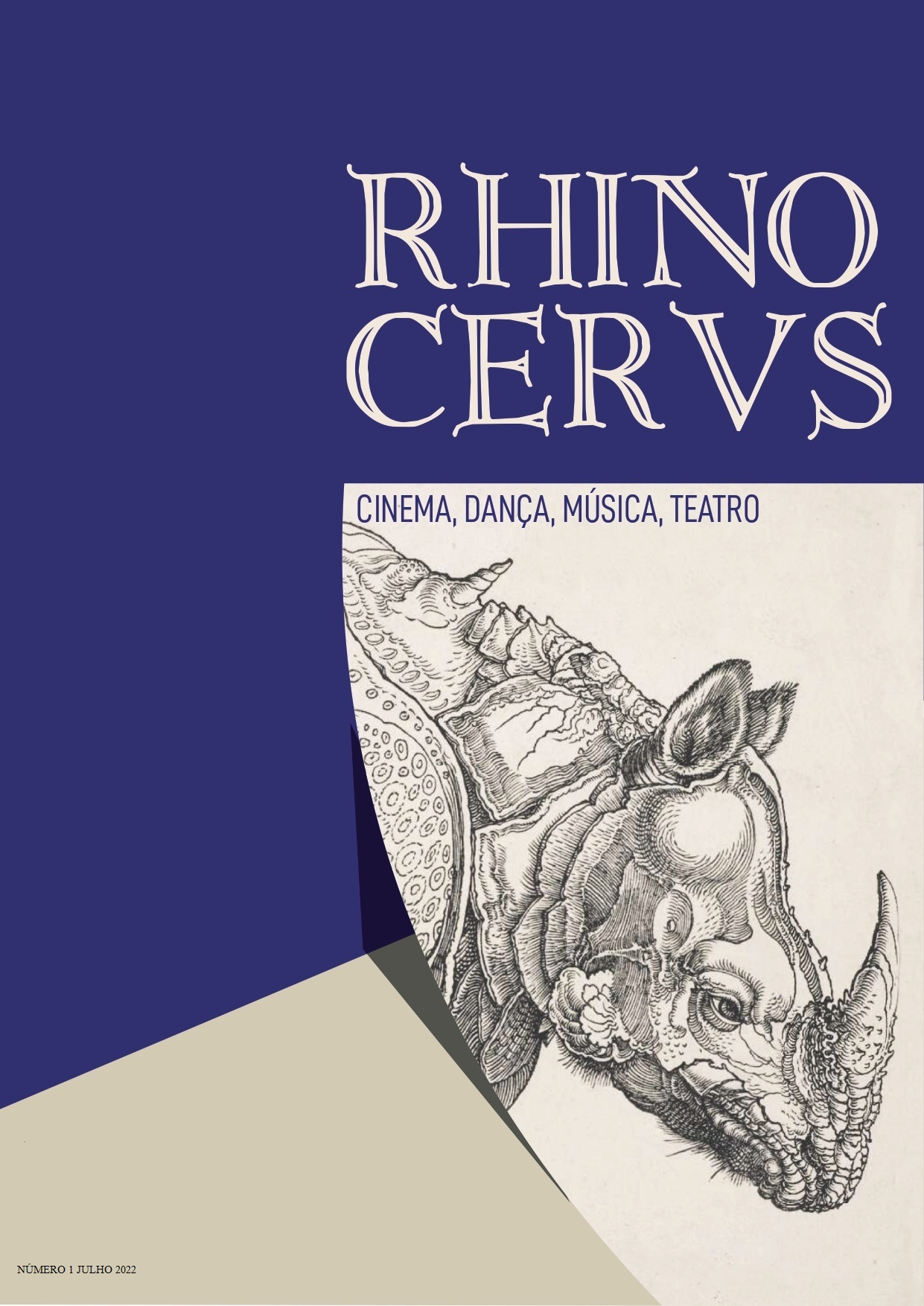The voice as a place of encounter and inclusion in the performing arts
DOI:
https://doi.org/10.34629/rcdmt.vol.1.n.1.pp76-86Keywords:
Voice, Vocality, Feminism, Inclusion, Theater, Vocal searchAbstract
This article addresses the unique and relational character of the voice, brought by Adriana Cavarero, but also the inclusive and feminist power of vocal research in contrast to a logocentric and melocentric approach that is mostly given to vocality. As a "leftover" or excess arising from a discourse, the voice is ignored theoretically and even artistically, even by more disruptive authors such as Judith Butler. However, creators/vocalists/thinkers like Cathy Berberian, Antonin Artaud, Meredith Monk, Fatima Miranda, Roy Hart, Diamanda Galàs, Laurie Anderson give us inspiring clues on how the voice can break established paradigms.
Downloads
References
Artaud, Antonin. 1996. O Teatro e o seu Duplo. Tradução Fiama Hasse Pais Brandão. Lisboa: Fenda.
Belo, Sara. 2020. “A Voz como Impulsionador da Criação Cénica: a Pré-Voz como Alicerce de um Teatro Vocal”. Tese de Doutoramento, Universidade de Lisboa.
Butler, Judith. 2017. Problemas de Género: Feminismo e Subversão da Identidade. Tradução Nuno Quintas. Lisboa: Orfeu Negro.
Cavarero, Adriana. 2000. Relating Narratives: Storytelling and Selfhood (Warwick Studies in European Philosophy). Tradução Paul A. Kottman. London, New York: Routledge.
_________. 2011. Vozes Plurais: Filosofia da Expressão Vocal. Tradução Flavio Terrigno Barbeitas. Belo Horizonte: Editora UFMG.
Crump, Melanie Austin. 2008. “When Words Are Not Enough: Tracing the Development of Extended Vocal Techniques in Twentieth-Century America”. PhD Diss., University of North Carolina. Acedido Abril, 1, 2022. https://libres.uncg.edu/ir/uncg/f/umi-uncg-1555.pdf.
Dolar, Mladen. 2006. A Voice and Nothing More. Massachusetts: MIT Press.
Karantonis, Pamela, et al. 2014. Cathy Berberian: Pioneer of Contemporary Vocality. London: Ashgate.
McClary, Susan. 2002. Feminine Endings: Music, Gender and Sexuality. Minneapolis, London: University of Minnesota Press.
Pardo, Enrique. 2003. “Figuring Out the Voice: Object, Subject, Project: Performing Strategies in the Use of Extended Voice Range Techniques in Relation to Language and Texts”. Performance Research 8 (1): 41-50. https://doi.org/10.1080/13528165.2003.10871908.
Schlichter, Annette. 2011. “Do Voices Matter? Vocality, Materiality, Gender Performativity”. Body and Society 17: 31-52. https://journals.sagepub.com/doi/10.1177/1357034X10394669.
Downloads
Published
Issue
Section
License
Copyright (c) 2022 RHINOCERVS: Cinema, Dança, Música, Teatro

This work is licensed under a Creative Commons Attribution-NonCommercial 4.0 International License.
Articles published or submitted to RHINOCERVS: Cinema, Dança, Música, Teatro are licensed according to Creative Commons Attribution License (CC BY-NC 4.0). Authors agree that:
Copyrights of all articles published are retained by authors with first publication copyright granted to the journal.
All articles are under the Creative Commons Attribution License recognizing the authorship of the publication and identifying that first publication took place in this journal.
Authors have the right to free distribute or make available in private or institutional pages the version published by RHINOCERVS: Cinema, Dança, Música, Teatro provided the original proper citation.
The journal only accepts articles not published previously (except in the form of an abstract or as part of academic thesis), that it is not under consideration for publication elsewhere. After published, the article cannot be published again partial or totally without the editorial board consent.





